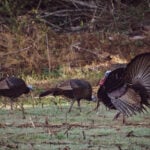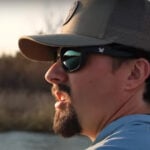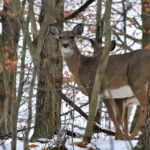The next time you see a 20- to 40-something hunting buddy sporting earbuds while filing paperwork, painting the garage or pounding out a morning run, don’t assume he’s listening to indie folk, country music or alternative rock on his iPhone.
Research suggests there’s a 25 percent chance he’s listening to a podcast – a digital audio file that’s basically a talk-radio show with few commercials. Listeners pluck podcasts for free off the internet with their computer or smartphone, picking hosts with unique perspectives who can explain topics of specific interest.
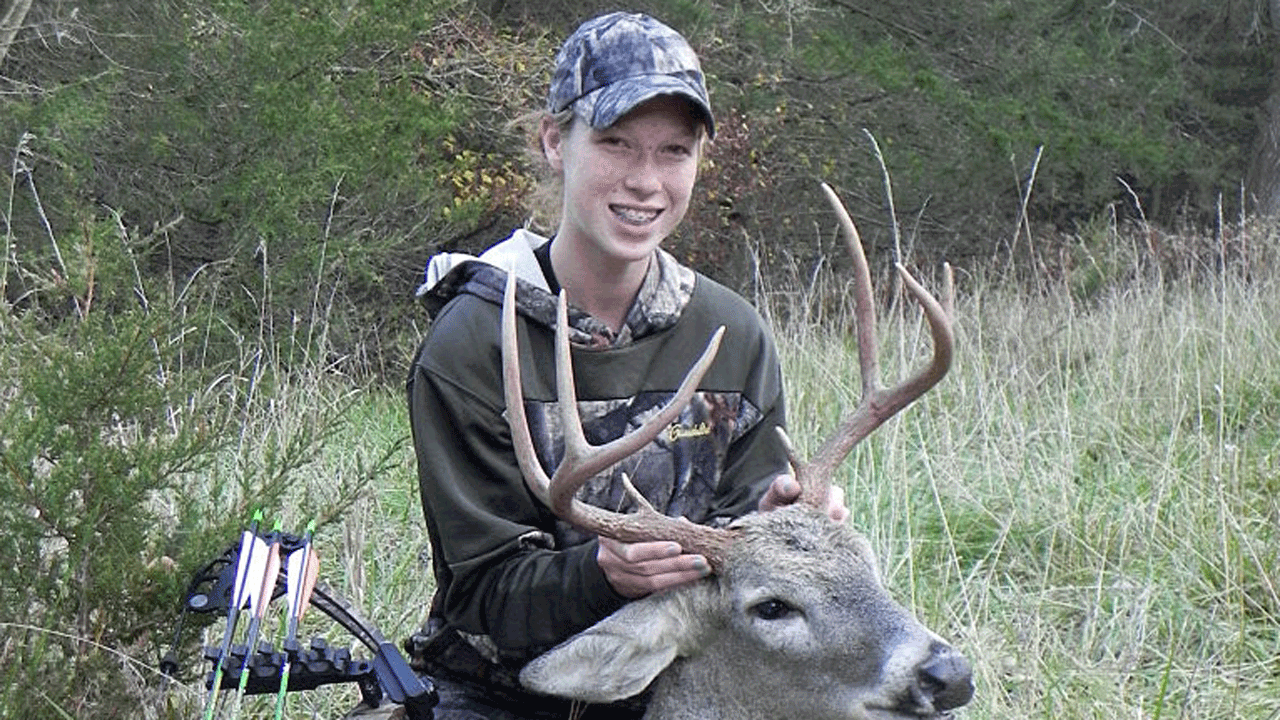
Hunters of all ages want information reliably delivered when it’s convenient for them to consume it.
Yes, folks might initially download a podcast based on its subject, but the host’s knowledge and personality ultimately determine whether listeners dump it for other shows or hit “subscribe” to automatically download future episodes. Hosts who connect with listeners make them feel like they’re part of a fun, thought-provoking conversation.
For hunters, the list of podcasts has jumped since 2014. For anglers? Well, unless you’re into fly-fishing or big fish in saltwater, podcast options remain few, despite the medium’s surging popularity in Apple’s iTunes store, and on smartphone apps like Stitcher and iHeart Radio. In fact, over 200 models of 2017 cars and trucks cater to podcast listeners with built-in Apple CarPlay and Android Auto software.
That’s what happens when well over half of Americans have heard the term “podcast,” while over 40 percent have listened to a podcast, 67 million listen to podcasts monthly, and 42 million listen weekly, according to Edison Research, which polls consumer trends. Further, those listener numbers increased by double digits from 2016, and 2016’s numbers increased by double digits from 2015.
Podcasting hit its stride about 2014 after a slow start in the mid-2000s, when most podcasts were simply edited, ad-free radio broadcasts from the previous day. In fact, the hunting market’s top five podcasts all launched within the past three years. “Wired to Hunt,” by Mark Kenyon, debuted in March 2014; followed by “MeatEater,” by Steven Rinella in January 2015; “Gritty Bowmen,” February 2015; “The Hunt Backcountry,” July 2015; and “Hunt Talk Radio, Randy Newberg Unfiltered,” June 2015.
Judging by reviews in iTunes, “MeatEater” is the No. 1 hunting podcast, with 2,786 reviews, of which 2,752 give a 5-star rating. “Wired to Hunt” is next with 750 reviews; and then it’s “Gritty Bowmen,” 611; “The Hunt Backcountry,” 510; and “Hunt Talk,” 204.
Rinella, Kenyon and Newberg all agree, however, that podcast rankings and “analytics” remain mysterious. Kenyon describes it as a strange, closely guarded “black-box algorithm” that goes beyond counting downloads. Still, they also agree podcasting’s data are improving and expect better analyses by 2018.
Each “MeatEater” episode generates several-hundred thousand listens within six to eight weeks of its release, Rinella said, adding that those numbers still amaze him. After all, until this award-winning author, writer and TV host appeared on “The Joe Rogan Experience” podcast in January 2012, Rinella didn’t know what “podcast” meant.
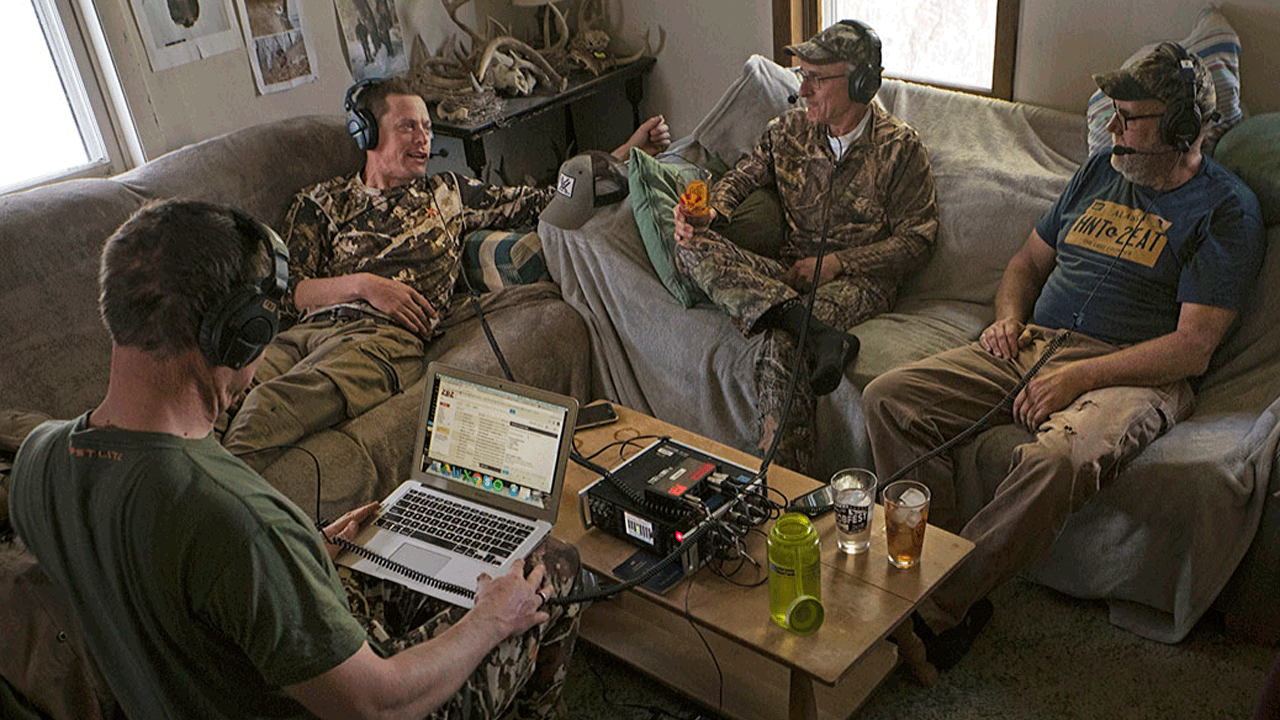
MeatEater host Steven Rinella, sprawled on the couch, talks with Patrick Durkin and Doug Duren while recording a podcast with producer Janis Putelis when visiting Wisconsin in May.
Rogan began podcasting in December 2009, and encouraged Rinella to get into the medium because he’s a well-read, well-traveled and well-spoken storyteller. Still, it took Rinella two years to heed Rogan’s advice. He started with semi-weekly episodes but went weekly earlier this year.
From the start, though, Rinella knew what he wanted from his podcast. He admired the interviewing skills of radio hosts like Howard Stern, and Terry Gross of NPR’s “Fresh Air.” He especially enjoyed the chaos of Stern’s show when the volatile host and his crew talked and argued from impossibly random perspectives.
Likewise, Rinella’s show is unpredictable. He talks comfortably about jigging for squid, knapping Clovis points, decoding jake-turkey behavior, explaining General Custer’s behavior, and adopting Quentin Tarantino’s creative tension when arranging bear skulls and mounted bucks in modern homes. Through it all, Rinella instills structure in his podcasts.
“You’re imposing order into your best B.S. session with the most informed people you can find,” he said. “The ground we cover in a two-hour ‘MeatEater’ episode is substance we’d usually need two or three days to cover if we were just hanging out. I like having people on who are credentialed and well-informed. My guests have unassailable hunting and fishing résumés. I already know what they’re up to, but I love teasing it out of them. Sharing that with listeners, that’s valuable to me.”
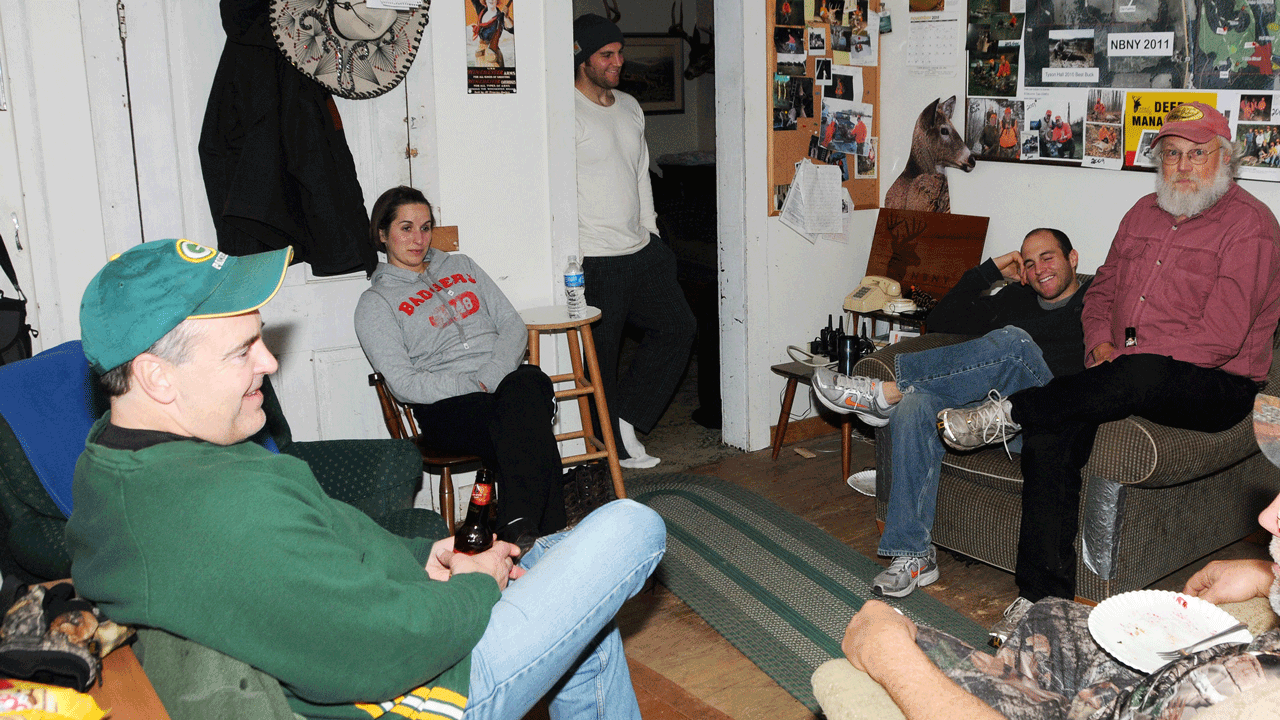
A good podcast distills a weekend-long B.S. session into a fun, well-structured two-hour conversation.
But isn’t two hours an eternity in today’s instant-gratification world? No. The Edison Research also found 85 percent of podcast listeners hear the entire show, even though average listeners subscribe to six podcasts and listen to five shows weekly.
Newberg’s 90-minute to two-hour “Hunt Talk” episodes release biweekly, and each triggers 100,000 to 120,000 downloads. “People want them even longer,” Newberg said. “They must spend lots of time commuting, or their full-time job doesn’t require their full attention. Podcasts are all about convenience; people consuming information while doing something else. You can’t read or watch a video while driving to work, but you can listen to a podcast.”
Speaking of creative tension, Newberg is a lifelong NRA member and proud Republican who is also hunting’s most outspoken advocate for protecting public lands and ensuring they remain accessible. “People like learning the history of our public lands and the political battles our country fought to get them,” he said. “A big part of that discussion is hunting’s own story. It’s compelling, and there’s no shortage of content.”
Kenyon agreed that no other electronic medium rivals podcasts for in-depth content. “Wired to Hunt” focuses on whitetails and deer hunting, and Kenyon’s audience expects hardcore information from his guests.
“Nothing is more important to people than their time, which explains why all media consumption is going to on-demand programming,” Kenyon said. “They don’t want to flip dials, sit through commercials or wait for one snippet at the end of a 23-minute program. They want specific information the entire podcast. To meet that demand as a host, you have to be endlessly curious and obsessed with learning.”
Given how some podcast hosts meet those regularly scheduled expectations, it’s no wonder more hunters are switching from music to podcasts for filling time or their listening leisure.

 By
By 